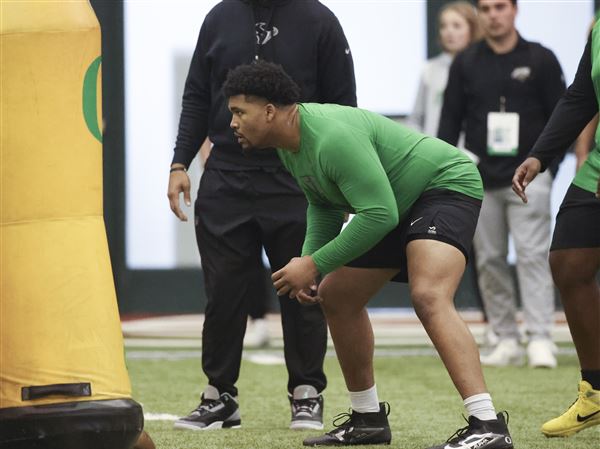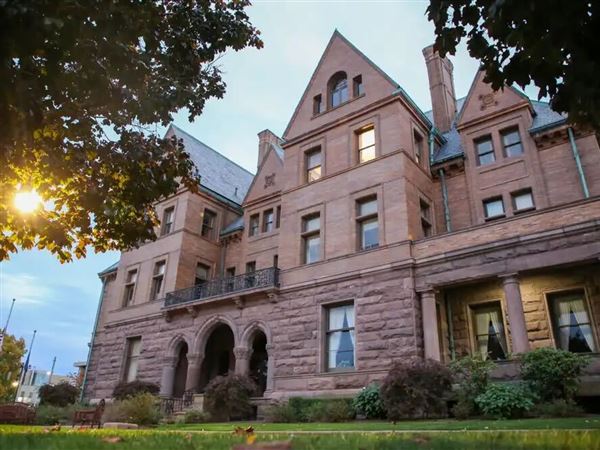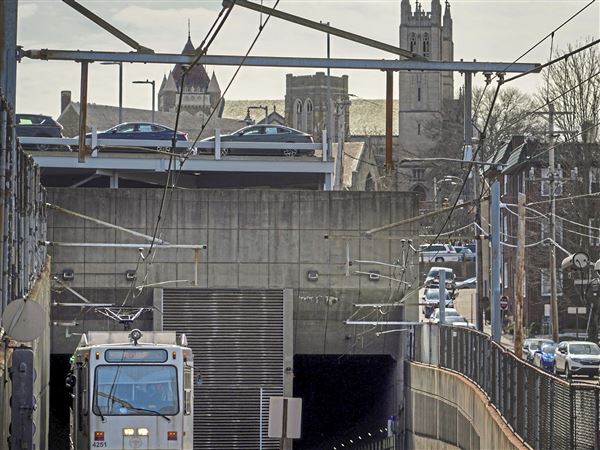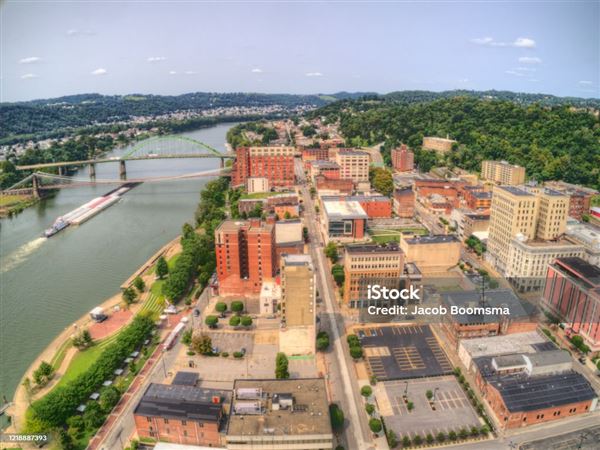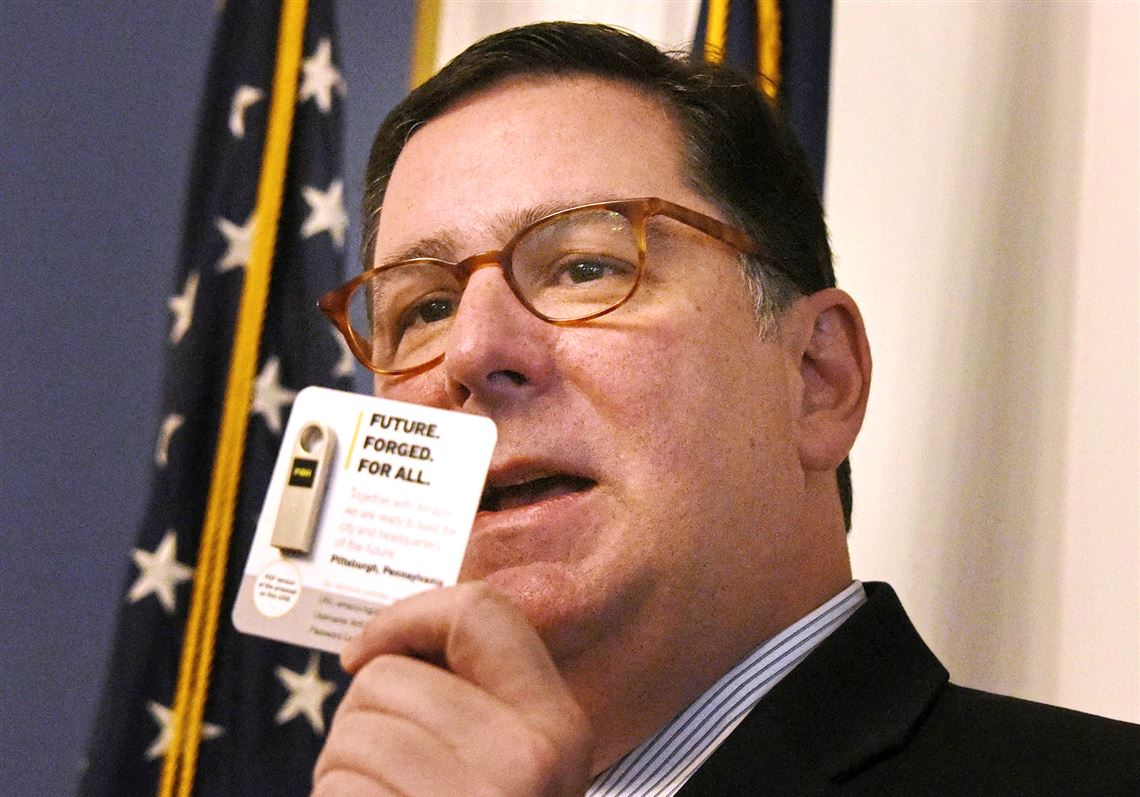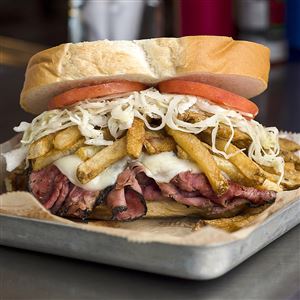Pittsburgh’s highly polished bid to land Amazon’s second headquarters has been made, and no other decision in our lifetimes would have a greater impact than whether this corporate monolith drops up to 50,000 jobs somewhere around our three rivers.
But a lot of us want to know more before we start rooting hard for a “yes” or a “no.”
The upside is clear enough. This region’s population peaked in 1960, and it’s spent the past three decades redefining itself as a place where high-tech jobs ought to be. That Pittsburgh is now on Moody Analytics’ short list of favorites to get the second headquarters — cutely called Amazon HQ2 — is testament to all the work that got us to this point where we punch above our weight.
It’s nonetheless unsettling to watch civic leaders across America behaving like contestants on “The Bachelorette” in their full-out wooing of Amazon. Corporate welfare has been part of the landscape for some time, but the numbers here — $1 billion in state tax incentives if Amazon chooses Pittsburgh or Philadelphia, and more than $300,000 spent here just assembling the bid — are staggering.
Paul O’Neill, the former treasury secretary and Alcoa CEO, brought some perspective to this bidding war — with something he said 16 years ago. Testifying before Congress in 2001 on his way into President George W. Bush’s Cabinet, Mr. O’Neill was asked what tax policy encourages business investment.
“I never made an investment decision based on the tax code,” Mr. O’Neill told Congress, pithily enough to be part of a National Public Radio report last week on the Amazon bidding war. “If you’re giving money away, I’ll take it, you know? If you want to give me inducements for something I’m going to do anyway, I’ll take it.”
Mr. O’Neill (no relation, alas) still keeps an office on Federal Street. We were unable to connect Friday but I’m hoping he weighs in soon on how he believes the city ought to play its hand.
I expect he’d suggest that whatever Pittsburgh needs to get Amazon is either here or it’s not.
“There is no other city in the country that has the talent that Amazon is looking for with the cost of living we have,” Mayor Bill Peduto said.
How tens of thousands of high-paying jobs would impact the cost of living here is what has some concerned. Seattle saw its rents and home prices soar as the company added about 35,000 jobs there since 2010.
Pittsburgh isn’t Seattle. There’s room to grow here. Mr. Peduto mentioned the city’s 17,000 vacant properties, most of them empty lots, and that number could easily double if we add neighboring boroughs. But most aren’t in desirable neighborhoods and untangling the titles to tax-delinquent castoff properties would take another task force.
Chris Briem, regional economist at the University of Pittsburgh, sees an odd symmetry in a booming Seattle-based company getting feelers from Pittsburgh. Because prior to Pittsburgh’s steel industry implosion in the 1980s, Seattle had its own regional depression in the early 1970s.
A sharp decline in military spending in Vietnam, a national recession and congressional defunding of supersonic jet development had Boeing shedding 60,000 aeronautics jobs in the three years ending in 1971. That left Seattle with 13 percent unemployment and a short-lived billboard outside its airport that has never been forgotten: “Will the last person leaving Seattle — Turn out the lights.”
Residents of both cities can tell you that job booms beat job busts. Anyone who thinks there would be no downside if Amazon lands here and goes boom is naive, but standing still or slipping backward again is no answer either.
The closest parallel we have to the employment surge Pittsburgh seeks now is what happened here in the 1940s. Early in World War II, a six-by-six-block slice of Homestead was leveled and trucked away, taking away a dozen churches, two convents, five schools, even more saloons and 8,000 residents to make way for the expansion of the U.S. Steel Homestead Works. America needed steel not just for ships and planes but to build the factories that would make them.
“That’s why the main drag in Homestead is Eighth Avenue,” Mr. Briem said. “Because everything below it was wiped out.”
Amazon wouldn’t have to level anything. We have the room. And the only war that figures into this venture is in retail. But there’s a reason the city’s slick video pitch to Amazon had more than 66,000 hits on YouTube in the first couple of days.
We hear we’re all going to be in the next episode, and we still don’t know enough about the script.
Brian O’Neill: boneill@post-gazette.com or 412-263-1947 or Twitter @brotheroneill
First Published: October 22, 2017, 4:15 a.m.
Updated: October 22, 2017, 4:43 a.m.
